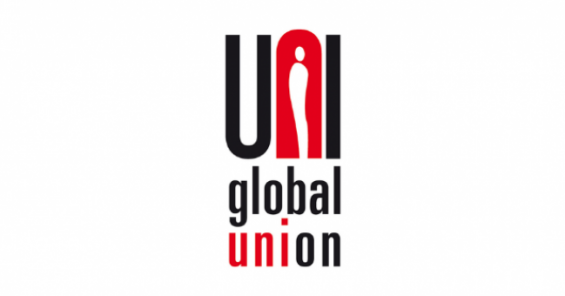Ninety tech workers in Pittsburgh, employed by Google contractor HCL, will vote September 24 on joining the United Steelworkers. This small number of workers is having a big impact on the “new world of work” because they are collectively addressing the practices dragging down standards for millions of tech workers the world over.
And UNI Global Union stands in full solidarity with them.
“Whether the industrial revolution or the digital one, workers in Pittsburgh have been trailblazers for a fairer economy,” said Christy Hoffman, General Secretary of UNI Global Union. “The organizing at HCL is an exciting breakthrough for the world’s Google workers and contractors, and it shows that employees in all sectors want—and need—their rights secured through unions and collective bargaining.”
The HCL workers are part of a two-tiered system in which they perform work “crucial” to Google’s business, yet have lower pay, limited benefits, and less paid time off. Their status as contractors makes them part of the highly-skilled precarious workforce that outnumbers direct Google employees and drives up Google’s massive profits through lower labor costs.
Despite workers’ demands that Google require neutrality from its contractors, the company has run an anti-union campaign that has been roundly criticized by the Steelworkers and Pittsburgh community.
“We just want a voice in the process,” Ben Gwin, an HCL employee, told the Pittsburgh City Paper. “And to be able to negotiate our own contract and have a more equitable work force for everyone.”
For UNI Information, Communications, Technology, and Services (ICTS), the challenges and opportunities for IT and tech employees like those at HCL are at the forefront of its work. The sector’s affiliates in Romania, Serbia, Hungary, and Bulgaria have helped highly trained tech workforces win better wages and conditions. IT workers in Japan, Korea, Malaysia, Indonesia, Nepal, and Sri Lanka have come also together with support from UNI in to make advances on shared issues and develop common strategies to build power across the sector.
And in the United States and Western Europe, UNI ICTS affiliates are creating innovative structures and supporting tech workers’ core demands around their safety and well-being at work; their tenuous employment relationships imposed through different forms of temp work, contracting or self-employment; the impact of their projects on communities and society as a whole; and other worker-identified issues that have brought workers to unify both on-line and off-line, take collective action, and build a tech workers movement spanning the globe.
At its recent conference in August, UNI ICTS focused on organizing in the new world of work, including among tech workers and the so-called fissured workforce, which includes contractors and temporary employees. Three hundred delegates from 66 countries came together to report on their organising victories, their bargaining challenges, and to study recent trends.
UNI unions represent some of the world’s biggest IT companies such as Atos, Accenture, Nokia, SAP, DXC, and IBM, but nevertheless most workers in the industry do not have a union voice.



